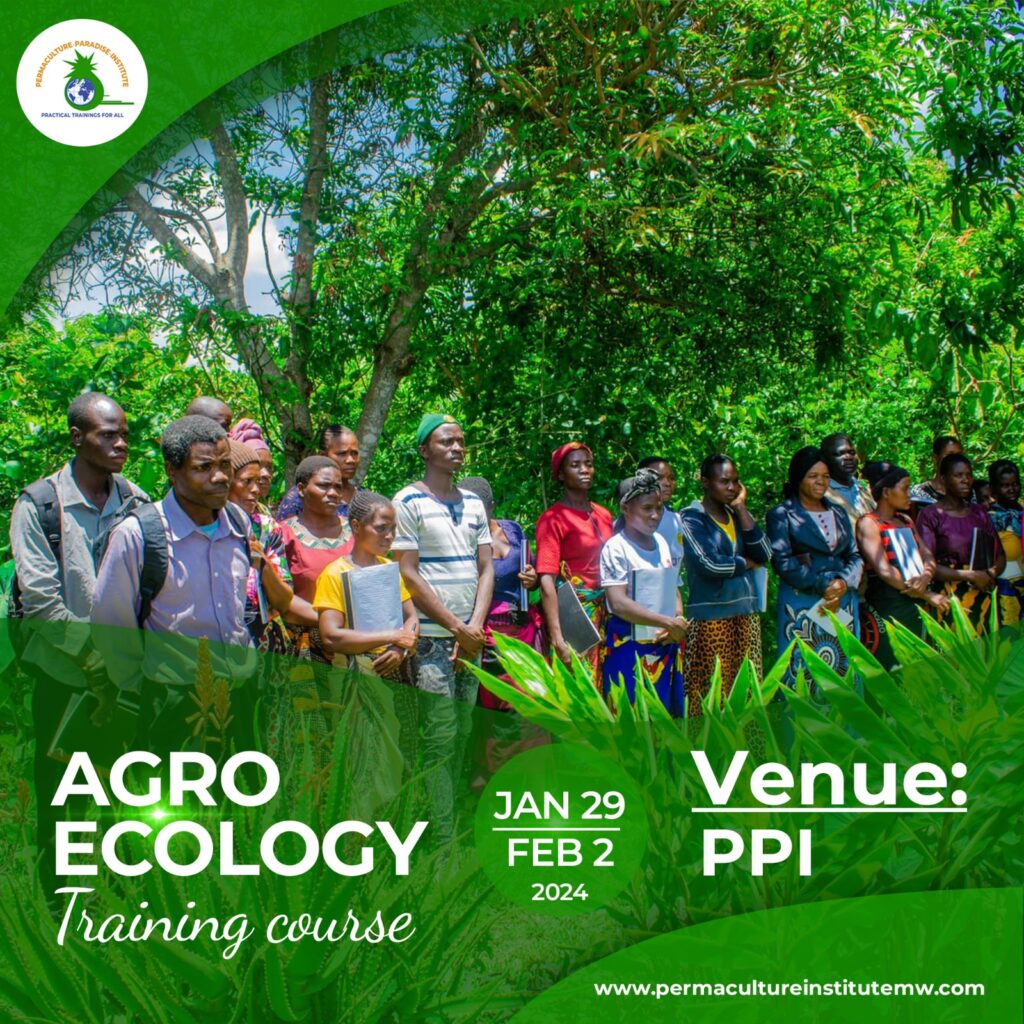VISITATION FROM CARD
On 24th November 2022, permaculture had visitors from CARD, they specifically came to learn practical agroecological Malawi examples. They were extremely amazed by the way permaculture gardens are plush and green yet it is just the beginning of the rainy season in Malawi. Permacultures’ food forest is not only abundant but also resilient
Total visitors in Nov
Educational visits


NEW TREE NURSERIES
On 28th November 2022, new tree nurseries were established by farmers in the southern region of Malawi from Chisi Island, Jali, and Thodwe in Zomba who just got their Permaculture training. The goal is to plant at least 400,000 trees in Zomba alone this growing season. Be on the lookout for more updates.


Agriculture Vs Permaculture



These photos were taken in the same month same year. Who is ready to join us as we envision planting 100,000 food forests by 2025?
The first photo results from poor policies and decisions which seem to enslave most conventional farmers. The following PICTURES are from permaculture’s cultivated Paradise, a food forest with over 300 food plants with 90 % wild plants which they did not plant.
In the first photo, the soil is not covered, no crops are left after harvesting season, no diversity, and no succession. This is what the world thinks will help address hunger, malnutrition, poverty, climate change, and many challenges only if it’s done at a larger scale with lots of chemicals and synthetic fertilizers.
The following photos are a great example of a practical productive food forest with soils well covered and protected, more diversity, more functions, production, more harmony and resilience, and easy to manage with very minimal inputs required
EDUCATION VISIT
On The 30th of Nov permaculture had 70 form four students from Bua secondary school came to learn practical Permaculture on sustainable agriculture, organic farming, biology, soil, plants and animal science, biogas systems, native plants and functions, waste management, organic architecture as they prepare for their examinations.
Permaculture as a design science provides practical examples for students as it presents formal education which is theory-based. Its training institute does not only provide solutions to teachers who fail to explain complex topics, but it also provides an opportunity for students to practically try some things instead of copying notes of the lessons which they do not know.
The students were exposed to both urban, pre-urban, rural, dry land, and wetland permaculture demonstrations, and herbal teas were prepared so that the students could feel the taste of paradise.




